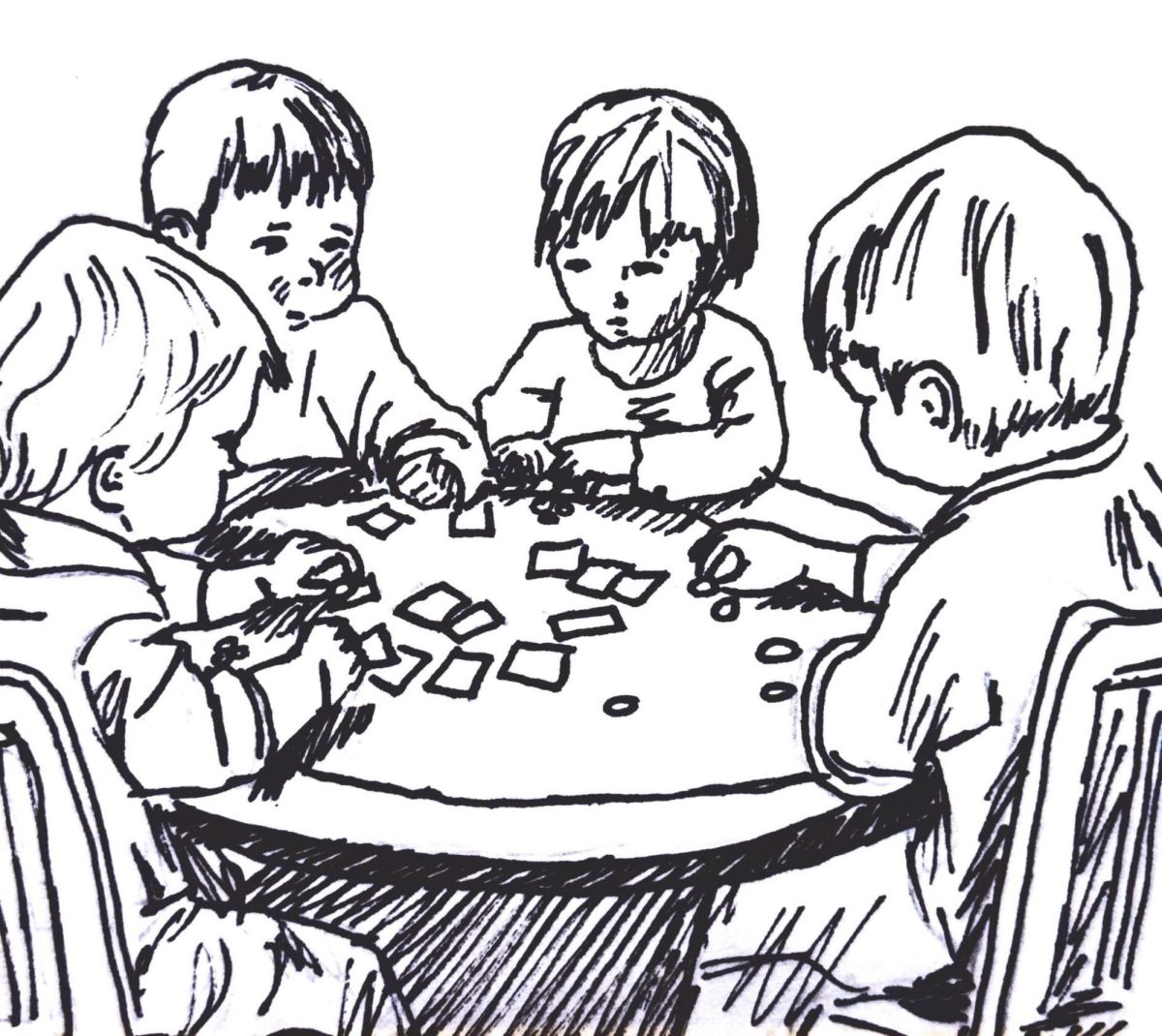Illustration by Andrea Nebhut
We all know a “cool girl” — hell, you might even be one. She isn’t “high maintenance,” isn’t really into traditionally feminine things like makeup and keeps the friend group ratio from looking too much like a men’s locker room.
She is accepted into the group under the unsaid assumption that she will basically abandon any effeminate pretenses and assimilate herself seamlessly into the preexisting male-centered rapport of the group. I am certainly not shaming any type of woman, but rather exploring the implications behind the fact that men must view a woman as essentially another man in order to see her as an equal.
Many women, including myself, have learned over time that men can be fun to hang out with. However, when a woman hangs out with heterosexual men, she is viewed (more or less) in one of two ways: as a sexual object or as another man. If she is viewed as a sexual object and only wants platonic friendships with said heterosexual men, she must constantly be slightly wary. She must be friendly, but not too friendly, so it won’t be mistaken for flirting; she must not do anything to “lead them on,” such as dressing “provocatively,” and she must fend off sexual advances from time to time, but often without the support of any of her other male friends, because “bros before hoes” is a sacred vow that must be upheld under any circumstances, including (but not limited to) sexual harassment.
The second option is essentially to be seen as a man, i.e. “one of the guys.” I have repeatedly found that women often aspire to this because it is an easy way to a) gain the respect of men and b) reduce the likelihood of any straight male friends making unwanted sexual advances. Unfortunately, by assuming this role, a woman has now not gained the respect of men as a woman, but instead must be seen as another man by men in order for them to respect her fully. Basically, men cannot treat a female individual as their equal unless they alter their perception of her so that she is male in their eyes.
“Women are usually _______,” they might say, “but you aren’t, Victoria, because you’re basically a guy.” They sit back, smiling, satisfied that they have dealt the compliment of the century because what little girl doesn’t dream of the day she can grow up and be excluded from sexist stereotyping only because her identity as a woman has been erased?
But what does it matter? Why can’t women simply be satisfied with this shortcut to respect? Partially because I am getting tired of introducing myself as “funny for a girl” and partially because it is not truly respect. Individuals who claim to be indifferent or “blind” to gender fail to recognize crucial aspects of a friend’s identity stemming from their gender and sex. This phenomenon is actually incongruous with the general male self-perception of their own gender identity, as men tend to overwhelmingly identify as hyper-masculine, to the point that this exaggerated caricature of what masculinity actually is bleeds out and affects other genders (predominantly women). A 2011 study published in “Social and Personality Psychology Compass“ found that middle school-aged girls often undergo a dramatic shift from extreme femininity to becoming tomboys — but boys do not, due to the “emergence of public regard and status awareness” that occurs as girls begin to observe how one’s gender affects the world’s perception of you.
This is what misogyny is, and it has been used to create patriarchal systems that have lasted for millennia. Men have created both great and terrible things in this world, but by taking up too much cultural space (and sometimes too much physical space), they have disadvantaged other genders by not allowing them to have equivalent amounts of space. In doing this, valuable contributions from non-male individuals are either overlooked or not allowed to exist at all, which is a gross disadvantage to the world and humanity as a whole.
So for the men reading this, I ask only one thing of you: next time your female friend speaks, allow her to voice her uniquely female perspective. Don’t limit her by immediately placing her in the “one of the guys” box. Give her space to express opinions that may be different from yours, and you will learn more about her, both as a person and a woman, the world around you and even yourself.






